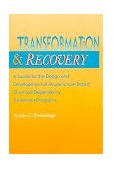Resources for Acupuncture in Chemical Dependency Treatment and Recovery

How long to clients have to keep having treatments?
(scroll down for answer)
The organization that is primarily
responsible for the contribution of acupuncture to the addiction treatment
field is the National
Acupuncture Detoxification Association. It is a well-acknowledged
shortcoming that the name implies that acupuncture's use is exclusively
in the treatment of acute withdrawal. Some funders have unfortunately
taken this quite literally, and will not reimburse for acupuncture beyond
the first 30 days.
While it is true that acupuncture
is an elegant and effective tool in the acute withdrawal phase, it also
has enormous benefit in the subsequent phases of recovery. As seasoned
treatment professionals know, the most important goal in alcohol and other
drug treatment is client retention. In order to retain clients
in treatment, programs must have strategies for addressing post-acute
withdrawal in order to help prevent relapse. The classic post-acute withdrawal
symptoms - the cycle of craving, anxiety, and depression, and sleep problems
that can continue for months and even years following the person's last
drug use.
Acupuncture is effective in
reducing and sometimes eliminating all of these post-acute withdrawal
symptoms. In the optimum program, acupuncture will therefore be available
to clients indefinitely, and they will be welcome to return for "tune-up"
treatments even past discharge or "graduation" from the program.
Some programs have clients still coming to acupuncture who have been sober
for two and three years.
When people begin going to 12-Step meetings, a common question is, "how long to I have to come here?" One answer that is sometimes given is, "You have to come until you want to come." Acupuncture is similarly a "client-centered" therapy. Its benefits are highly subjective, and clients quickly become experts in how it works for them. The program's responsibility is to make the treatment available to its clients "as needed" with no time limits, and to encourage people to "keep coming back!"
previous
- Read FAQs in Sequence - next
Index of Articles - Links - Home
Scroll Down for More "Frequently Asked Questions"
How many clients can be treated at once?
How often do clients need to be treated?
How long to clients have to keep having treatments?
Does it matter what time of day the acupuncture is provided?
What
national organizations support acupuncture in treating addiction? What
resources are available to support us if we decide to do it?
Does
the acupuncture program have to include herbs or nutritional supplements?
What
is the history of how acupuncture began to be used in chemical dependency
treatment?
What
does the acupuncture clinic look like exactly?
How
much space and extra equipment will we need to do it?
How
do we clean or dispose of the needles after they are used?
How
does acupuncture fit with drug testing?
How
do we find and train people to do the needling?
Could
we just try it experimentally to make sure it's a good fit for us?
What
technical assistance will be required to start and maintain an acupuncture
component?
Is
it compatible with harm reduction?
Is
it compatible with 12-Step or abstinence-based treatment approaches?
Is
it appropriate for mandated or court-referred clients?
Is
it appropriate for adolescents?
Is
it appropriate for pregnant women?
Is
it appropriate for people with co-morbid psychiatric problems?
Is
it appropriate for people with HIV/AIDS?
Is
it appropriate in methadone programs?
Is
it appropriate in residential programs?
What
training is required for current program and administrative staff?
What are the steps we should take to add an acupuncture component?
